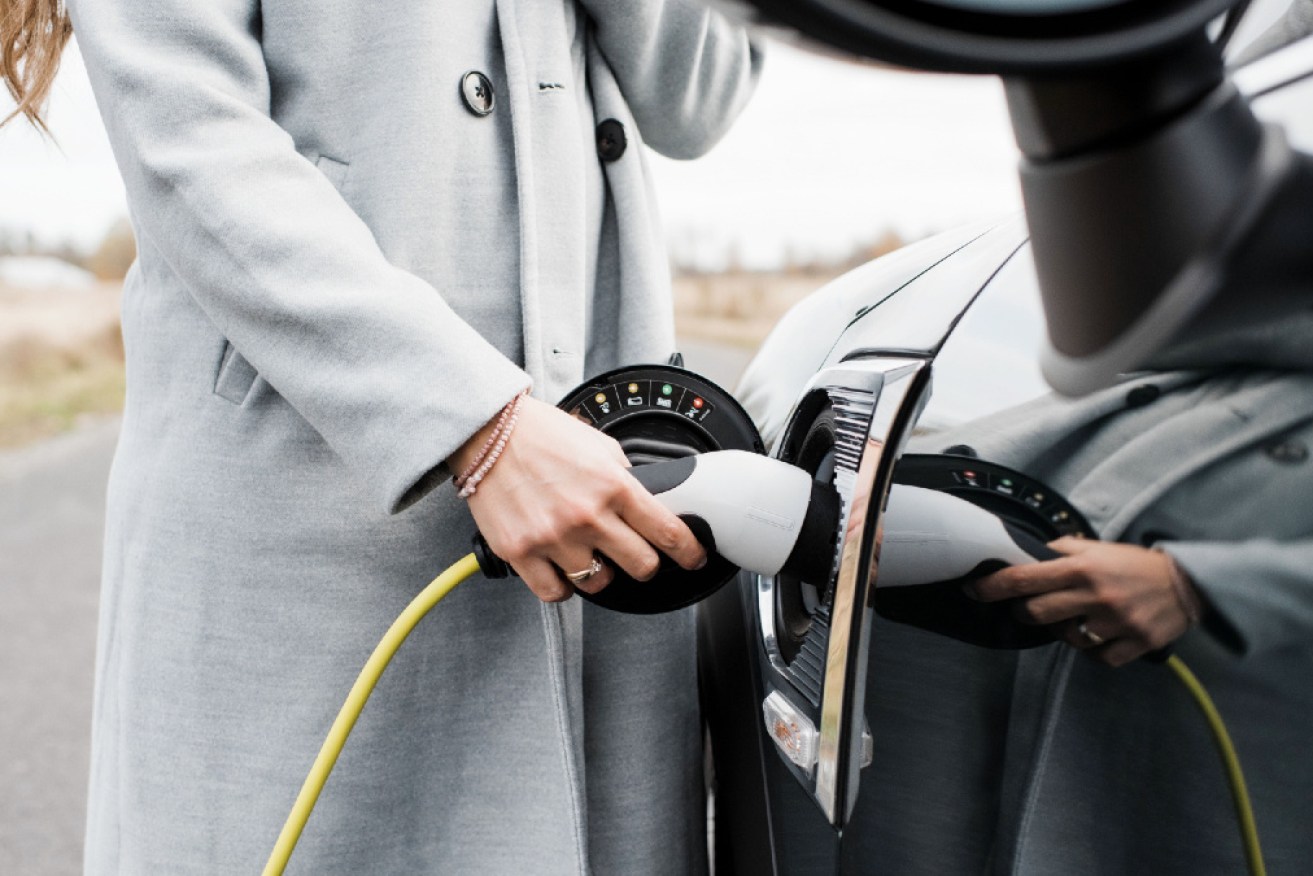Fuel-efficiency crackdown aimed at turbocharging the rise of ‘really cheap’ electric vehicles


Australians can access incredible savings by switching to electric vehicles. Photo: Getty
The federal government is considering a crackdown on petrol-guzzling cars in a bid to turbocharge adoption of electric vehicles and stop manufacturers using Australia as a dumping ground for dirty models.
Energy Minister Chris Bowen announced fresh consultation on tougher fuel efficiency rules on Friday, saying Australia should aim for new standards “as close to best practice as possible”.
“While standards must be designed specifically for Australia, standards that lack ambition will leave us at the back of the global queue for longer,” Mr Bowen told an audience in Canberra.
The review is a major win for climate advocates and the EV industry, which argue Australia’s lax 2005-era fuel standards are holding back adoption of cleaner cars and allowing manufacturers to treat the market like a “carpark for clunkers” – costing motorists $5.9 billion since 2015.
But Mr Bowen stopped short of committing to any specific policy, with experts warning the devil will be in the details as to whether Australia adopts world-leading fuel efficiency standards.
“It’s unlikely we’re going to match the European standards,” said University of Queensland professor John Quiggin.
“The main thing is to get the policy in place first and then try to catch up with the rest of the world.”
Old and outdated standards
The government will hold consultation on tougher fuel standards in September and from there will decide whether to move forward with designing a detailed policy, Mr Bowen explained.
Australia’s current 2005-era fuel standards regime is voluntary and lags far behind other markets like Europe and the United States.
Vehicles in these markets emit between 26 to 34 per cent less carbon dioxide on average.
Tweet from @Bowenchris
And because local standards are so far behind larger markets, manufacturers have prioritised sending their newer lower emissions cars to those places, leaving dirtier vehicles for Australia.
Just 31 EV models were available in Australia in 2021, compared to hundreds in Europe and the United States.
Experts say that has created severe supply issues for new vehicles in Australia, where the sticker price for the cheapest EV is more than $18,000 higher than the cheapest petrol vehicle.
A recent Solar Citizens survey of 1712 Australians found 44 per cent of would only consider buying an EV if the purchase price was $30,000 or less.
Unbelievable savings
That’s despite EVs being less expensive to run than petrol cars, with Solar Citizens national director Heidi Lee Douglas saying EVs charged with solar panels are up to 93 per cent cheaper.
“Prices during the day are really cheap,” she said. “With the energy and cost of living crises and a change in government, it’s the perfect time to adopt world-leading efficiency standards.”
Figures compiled by Solar Citizens recently show it costs between 60 cents and $1.82 per 100 kilometres to run an EV charged with solar power during the middle of the day – compared to $19.20 for a typical petrol car right now.
That figure rises to $3.50 if the EV is charged using power from the grid – still about 81 per cent cheaper than petrol.
Tougher fuel standards would also save motorists driving petrol vehicles, with recent research from the Australia Institute finding motorists have missed out on $5.9 billion in savings over seven years because tougher rules haven’t been introduced.
An additional nine million tonnes of carbon dioxide emissions have also been emitted as a result of the lax rules, the progressive think-tank found.
Australia Institute lead transport research Audrey Quicke said Friday’s announcement was welcome, but she added Australia must move quickly towards electric vehicles to achieve net zero by 2050.
‘They must have teeth’
If Australians are still buying petrol cars in 2035 then “basic maths” tells us net zero will be difficult to achieve, she said, because cars typically have a 15-year lifespan on the road.
“The announcement from Minister Bowen this morning is absolutely a step in the right direction,” said Ms Quicke.
“But it is only a step and we need a sprint to the finish line, the devil will absolutely be in the detail.”
The government move was also welcomed by climate advocates and the EV industry on Friday, with tech entrepreneur Mike Cannon-Brookes saying Australia must avoid merely playing catch-up.
“We shouldn’t be ashamed of copying what’s best from the rest of the world,” he said.
“These cannot be voluntary standards, they must be compulsory and they must have teeth.”








